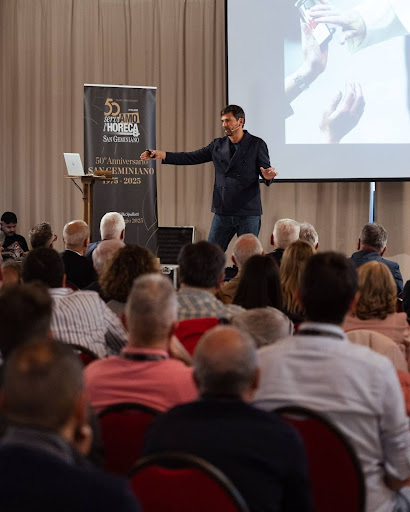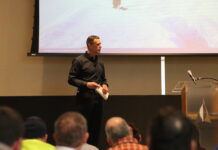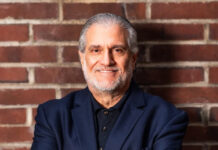Moving from SDGs to IDGs: The quiet revolution reshaping leadership and the future of sustainability
The Limits of External Goals in a Spiritually Starved World
In recent years, the United Nations’ Sustainable Development Goals (SDGs) have provided a widely accepted blueprint to address major global challenges, including poverty, climate change, and inequality. These goals have been adopted by governments and organizations across the world as a framework for tangible progress.
But according to Oscar Di Montigny, creator of the Spherical Economy and founder of the Grateful Foundation, these goals, while crucial, do not go far enough. “You can’t change the world,” he says, “if you haven’t first transformed the self.”
This belief drives Di Montigny’s advocacy for a new frontier of leadership: the Inner Development Goals (IDGs). Developed as a complementary initiative to the SDGs, the IDGs focus not on external action but on cultivating the internal skills and awareness needed to create lasting societal change. In his view, these goals do not replace the SDGs; they unlock their potential.
The problems we face today are no longer just technical. They are emotional, ethical, and spiritual. The world has developed solutions faster than it has developed self-awareness. As a result, many efforts to improve society are undermined by poor leadership, unconscious bias, and a lack of deeper connection to meaning and purpose.
Di Montigny’s Message: Real Change Begins Within
Oscar Di Montigny is not a traditional business thinker. Often referred to as a philosopher of the future, his frameworks, like Spherism and Humanovability, challenge the core assumptions of performance-driven leadership. He believes that to truly create impact, leaders must shift from external control to internal coherence.
This is where the IDGs find their natural home. Structured around five dimensions: Being, Thinking, Relating, Collaborating, and Acting, they emphasize qualities such as self-awareness, empathy, humility, resilience, and reflective thinking.
For Di Montigny, these are not soft skills. They are survival skills for a complex, fast-moving, and emotionally fractured world. In his teachings, he emphasizes that sustainability begins with soulfulness. Leaders must cultivate their inner world before they can meaningfully shape the outer one.
He likens the shift from SDGs to IDGs to the transition from circular thinking to spherical thinking. Circular models may close loops, but they often remain focused on function. Spherical thinking, by contrast, recognizes that every action reverberates across interconnected systems, economic, ecological, emotional, and spiritual.
Just as his Spherical Economy model integrates innovation, sustainability, and human dignity, the IDGs represent the same kind of integration at a personal level. They do not measure outputs. They measure alignment.
Presence Is the New Currency of Leadership
In a business culture dominated by performance metrics and quarterly goals, Di Montigny’s approach offers a powerful counterbalance. He believes that the next generation of leaders will not be those who scale the fastest, but those who are the most centered. In his words, “It is no longer enough to manage resources. We must manage resonance.”
This shift has implications far beyond personal development. Consumers are increasingly drawn to purpose-driven brands. Employees, particularly from younger generations, are demanding workplaces that support emotional intelligence and ethical clarity. Investors are looking beyond profits toward impact and sustainability metrics.
Oscar’s message to CEOs and policymakers is clear. Inner development is not a luxury. It is a leadership imperative. Organizations that ignore this shift may find themselves out of sync with the consciousness of the future.
Through initiatives like the Grateful Foundation and Wise Gate, Di Montigny is helping institutions embed these principles into education, corporate governance, and civic engagement. He speaks at global forums and works alongside universities to elevate a message that is both timeless and urgently needed.
The IDGs, in his view, are not just an add-on to the SDGs. They are the spiritual infrastructure required to make any form of progress sustainable.
The Future Is Not Just Built. It Is Breathed Into Being
Oscar Di Montigny is among a growing group of global thinkers urging society to stop outsourcing transformation. He believes the true revolution will not be technological. It will be human.
The path from SDGs to IDGs is not a retreat from responsibility. It is the most responsible step a leader can take. It is a quiet revolution, but one with profound consequences for how we define success, lead others, and leave a legacy.
As Di Montigny often says, “You can only change the world to the extent that you are willing to change yourself.” The world may need new systems and strategies, but first, it needs awakened souls to guide them.








